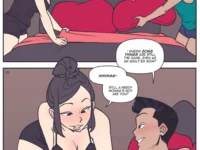Hikari no densetsu episode






Looking for information on the anime Hikari no Densetsu? Find out more with MyAnimeList, the world's most active online anime and manga community and database. Hikari is a young school girl who dreams of becoming a great champion in the sport of rhythmic gymnastics like her idol, Diliana Gueorguiva. Despite all her setbacks while performing, she works hard and with the help and support of Takaaki Oiishi (the best male gymnast of her school) soon becomes a member of the rhythmic gymnastics team i…
Hikari is a young school girl who dreams of becoming a great champion in the sport of rhythmic gymnastics like her idol, Diliana Gueorguiva. Despite all her setbacks while performing, she works hard and with the help and support of Takaaki Oiishi (the best male gymnast of her school) soon becomes a member of the rhythmic gymnastics team in her school. She develops feelings for Oiishi, but she is not the only one—Hazuki Shiina, the best gymnast in the entire school, also has feelings for Oiishi. Soon a friendship between Hikari and Shiina develops, but also a rivalry as well in the sport and for the love of Oiishi. Hikari is also torn between her feelings for Oiishi and her conflicting feelings for Mao Natsukawa, an old childhood friend, who is also the lead singer of the band called Mr. D. He composes the music she uses while performing, and has been developing feelings for her since childhood.
Hikari is a young school girl who dreams of becoming a great champion in the sport of rhythmic gymnastics like her idol, Diliana Gueorguiva. Despite all her setbacks while performing, she works hard and with the help and support of Takaaki Oiishi (the best male gymnast of her school) soon becomes a member of the rhythmic gymnastics team in her school. She develops feelings for Oiishi, but she is not the only one—Hazuki Shiina, the best gymnast in the entire school, also has feelings for Oiishi. Soon a friendship between Hikari and Shiina develops, but also a rivalry as well in the sport and for the love of Oiishi. Hikari is also torn between her feelings for Oiishi and her conflicting feelings for Mao Natsukawa, an old childhood friend, who is also the lead singer of the band called Mr. D. He composes the music she uses while performing, and has been developing feelings for her since childhood. (Source: ANN)
Over the years, Mao has come to love Hikari deeply, but Hikari has fallen in love with Takaaki Ooishi. While this causes a rift in Hikari and Mao’s relationship, he remains a loyal friend. When Hikari discovers that Hazuki also has feelings for Takaaki, they become rivals in sport and love. Hikari does not know how Takaaki feels about her, and worries Takaaki might fall for Hazuki because of her gymnastic talent. Hikari begins to perfect her skills, and is soon competing at the national and international level.
When Hikari, Mao, Hazuki, Takaaki and rest of the athletes competing in the 1988 Summer Olympics travel to Seoul, Hikari finds out that Ooishi and Hazuki are in love and that they are set to be married. Hikari turns to Mao Natsukawa for support, but he becomes frustrated with her for ignoring his own love for her. When Mao leaves Hikari, she realizes that she has feelings for him, too. Even while he is not there to watch her compete, Hikari is determined to prove to Mao that he is an important part of her life and her success.
At the end of the manga, Hikari is competing at the 1988 Summer Olympics. While she is performing, Mao begins to sing an Italian love song, even though vocal music is banned during competitions. Despite this Hikari and Mao finish their performance, prompting applause from the crowd and their friends, Takaaki and Hazuki, who have come to see them perform. Before the winner is announced, both Hikari and Mao exit the competition arena. The manga concludes with Hikari smiling, hinting that in the end she may have not won a medal, but that she will have a bright future with Mao.
Hikari no Densetsu is originally a manga series by manga artist Izumi Aso about a girl named Hikari Kamijou who dreams of becoming a national rhythmic gymnastics champion
Hikari no Densetsu (, lit. Legend of Light) is a Japanese manga series about a girl named Hikari Kamijou who aspires to be a national rhythmic gymnastics champion. It was written and illustrated by Izumi Aso. The title of the manga series translates to “Legend of Light” in English (the female lead character’s name, Hikari, means “light” in Japanese). In the mid-1980s, the manga series was adapted into a nineteen-episode anime series directed by Tomomi Mochizuki and broadcast on MBS by Tatsunoko Productions.
Nuevo hack del juego Ultraman: Hikari no Kyojin Densetsu para la Sega Saturn aprovechando las 4MB de RAM
StoryAs an amalgamation of generic romance and a unique sporting gimmick, Hikari no Densetsu is the definitive shoujo sports anime. Take your typical high school love affair with all its ‘loves me / loves me not’ teenage angst, add a handful of talented protagonists, and stir vigorously with a distinctive art form to make a wholesome, satisfying drama. Whilst totally unremarkable in content, the protagonists’ romantic trials manage to stop short of melodrama (an achievement in itself for most shoujo). I’d even go as far as to say that, in ditching the common love ‘triangle’ for the ‘quadrangle’, Hikari no Densetsu allows for a more interesting range of tensions than many other romances. Given that, what truly makes this anime worth following is its delightful portrayal of rhythmic gymnastics. With beautifully choreographed routines and personalised styles for the two lead females which come across well in the animation, the tense drama surrounding the competitions is enough to keep most viewers coming back for more. Unfortunately, every silver lining has its cloud, and that goes for this title as well. Like so many anime before it and undoubtedly many more after, Hikari no Densetsu suffers from an abrupt ending; supposedly, the show never got the ratings it needed to continue in Japan, resulting in a rushed conclusion at episode nineteen. I guess this is not the worst flaw ever to have plagued a series, but Hikari no Densetsu is one of those victims that could easily have achieved more and certainly deserved better.AnimationConsidering that Hikari no Densetsu is a late-80s production, I’m sure it comes as no surprise to say it looks simplistic compared to newer anime – the everyday scenes of Hikari playing in her room or Natsukawa strolling down the street look acceptable, albeit not remarkable. As soon as the gymnastics takes centre stage, however, the characters glide across the screen in relatively intricate routines obviously designed with real-life choreography in mind. Such attention to detail is rare even today, and one immediate benefit is that Hikari no Densetsu’s dated style still looks rather pretty.SoundJust like the animation, the music accompanying the gymnastics is exquisite; dramatic, sensual, or lively piano compositions really bring the tournaments to life, with Hikari’s key theme being the most memorable. As for the opening and ending themes, they are standard eighties pop ballads with high-pitched vocals and the prerequisite power drum beat; I listened to them once and then skipped them with subsequent episodes (they get repeated during some of the scenes anyway). Lastly, Natsukawa’s band throws some cheesy glam rock into the mix; although entertaining to listen to, I doubt too many anime fans will actively seek to purchase the singles.CharactersOutside of the tournaments, the main cast are usually engaged in intense romantic rivalry. In this instance, Hikari no Densetsu displays some convincing albeit stereotypical character interplay. First there are the girls: Hikari is the happy-go-lucky lead – and that is all there is to say about her. As a protagonist, her only remarkable trait is her talent at gymnastics. Hikari also has a supportive friendship with Hatsuki, her main rival for Ooishi’s attention as well as in gymnastics. This amiable dynamic works very much in the series’ favour; since both of them are kind-hearted individuals, I find myself emotionally torn as to who I really want to win. Then there are the boys: Ooishi, a typical prince charming type who always knows the right words to say, also happens to be unbelievably good and, thus, annoying as hell; his naïve obliviousness regarding the two girls’ heartache makes me wonder how he could be worth all the fuss. Fortunately, Natsukawa, an aspiring rock star and Hikari’s admirer, provides the necessary relief by generally being as moody and abrasive as possible; moreover, he turns out to be one of the more sympathetic characters because of his commonsense understanding of everyone’s feelings. Of course, my main regret regarding the two boys is that the hasty ending leaves their personal struggles largely unexplored.OverallSince Hikari no Densetsu was released more than twenty years ago in almost every language other than English, only hardcore connoisseurs of anime are likely to make the effort to hunt this one out. That said, if you’re lucky enough to stumble across it by accident, be sure to beg, steal or borrow the copy; while Hikari no Densetsu may revolve around romantic stereotypes, it also offers the rare gift of pretty, captivating rhythmic gymnastics.
The Legend of the Legendary Heroes (Japanese:, Hepburn: Densetsu no Ysha no Densetsu) is an 11-volume Japanese light novel series written by Takaya Kagami and illustrated by Saori Toyota that was published by Fujimi Shobo in Dragon Magazine between February 20, 2002 and October 20, 2006. The Legend of the Great Legendary Heroes (, Dai Densetsu no Ysha no Densetsu), the sequel, debuted on October 20, 2007, and has since been collected into 18 volumes. The Legend of Legendary Heroes Anyway (, Toriaezu Densetsu no Ysha no Densetsu), a collection of short stories that ran from December 20, 2002 to June 20, 2007 and was compiled into 11 volumes, and The Legend of the Black Fallen Hero (, Ochita Kuroi Ysha no Densetsu), which ran from December 20, 2007 to August 20, 2013 and was published in 8 volumes, are two spin-off series from the main series.




























